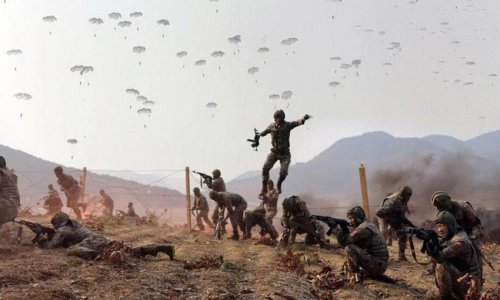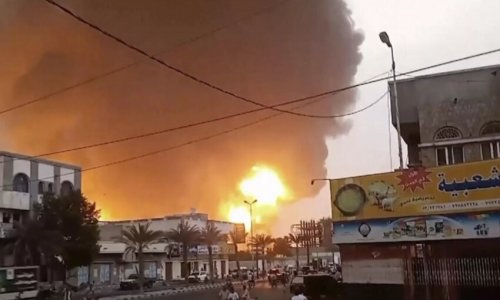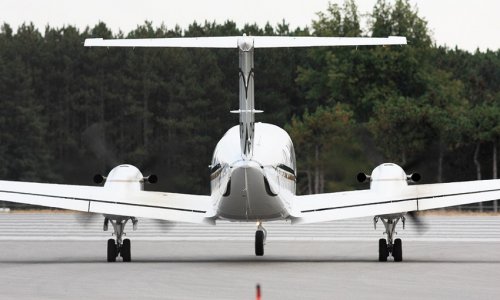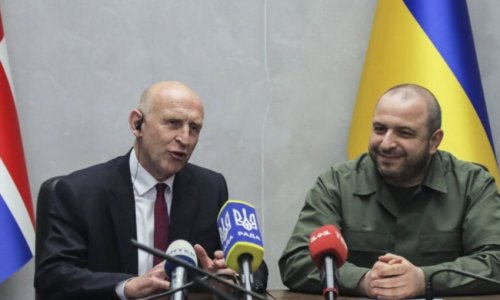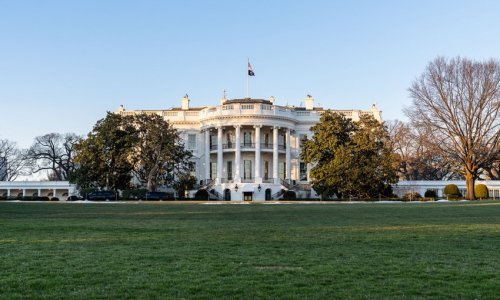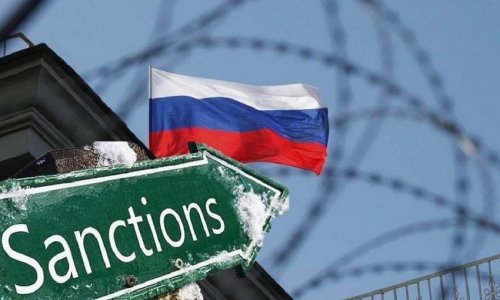But the White House also insisted it had no intention of sending ground troops.The remarks came after the cities of Mosul and Tikrit fell to Sunni Islamist insurgents during a lightning advance.The US has begun moving defence contractors working with the Iraqi military to safer areas."We can confirm that US citizens, under contract to the government of Iraq, in support of the US Foreign Military Sales (FMS) programme in Iraq, are being temporarily relocated by their companies due to security concerns in the area," state department spokesperson Jen Psaki said.Several hundred were being evacuated from Balad air base to Baghdad, a US defence official told AFP.Led by the Islamic State in Iraq and the Levant (ISIS), the insurgents are believed to be planning to push further south to the capital, Baghdad, and regions dominated by Iraq's Shia Muslim majority, whom they regard as "infidels".Unconfirmed reports on Thursday said Iraqi forces had launched air strikes on Mosul and Tikrit targeting the militants.Correspondents say that if ISIS can hold Mosul and consolidate its presence there, it will have taken a giant step towards its goal of creating an Islamist emirate that straddles Iraq and Syria, where insurgents control a large swathe of territory.Fears of ISIS sparking a wider Sunni uprising have increased with reports that former Baath Party members loyal to Saddam Hussein have joined forces with the jihadists.One resident in Tikrit, Saddam Hussein's former hometown, told the AP news agency that fighters raised posters of the former dictator after driving the army out.The United Nations Security Council said on Thursday it unanimously supported Iraq's government and people in their "fight against terrorism".Earlier it said the humanitarian situation around Mosul, from where up to 500,000 people have fled, was "dire and... worsening by the moment".Analysis: Jeremy Bowen, BBC Middle East editorIf ISIS can hold Mosul and consolidate its presence there it will have taken a giant step towards its goal of creating an Islamist emirate that straddles Iraq and Syria.It would be the most significant act by a jihadist group since al-Qaeda attacked the US on 11 September 2001. It could also lead to other changes on the borders Britain and France imposed on the Middle East a century ago, starting with break-up of Iraq on sectarian lines.The success of ISIS can only make the turmoil in the Middle East worse. ISIS is an ultra extremist Sunni Muslim group. Its success will deepen the sectarian conflict between Sunnis and Shias that is already the most dangerous fault line in the Middle East.Iran, which is a majority Shia Muslim country, shares a border with Iraq. It has a direct line to Iraq's Shia Muslim prime minister, Nouri Maliki, and close links with some Iraqi Shia militias. The Iranians could direct their proxies, and even their own special forces units, at ISIS.That might end up further inflaming the anger of Iraqi Sunnis, which have already helped the advance of ISIS through Iraq.US air strikes, if they happen, might do the same thing. Once again in the Middle East, the Americans have limited options. Its invasion and occupation of Iraq in 2003 helped create and strengthen jihadist groups.Insurgent advance"There will be some short-term immediate things that need to be done militarily," Mr Obama told reporters at the White House as he met Australian Prime Minister Tony Abbott."I don't rule out anything because we do have a stake in making sure these jihadists are not getting a permanent foothold in Iraq, or Syria for that matter."White House spokesman Jay Carney subsequently added that President Obama was referring to not ruling out air strikes. "We are not contemplating ground troops," he said.Iraq's ambassador to the US, Lukman Faily, earlier told the BBC this was the "most serious situation" faced by the country in recent years.A parliamentary vote to grant PM Nouri al-Maliki emergency powers was delayed earlier after MPs failed to turn up.Just 128 out of the 325 MPs were present for the vote.Correspondents say the failure of the Iraqi parliament to achieve a quorum to vote on emergency powers says much about the fragmented state of Iraqi politics.In the north of the country, Kurdish forces have claimed control of the oil city of Kirkuk, saying government forces have fled.The Kurds - seen as a bulwark against the Sunni Muslim insurgents - have also been locked for years in a dispute with Baghdad over Kirkuk, seeking to incorporate it into their own autonomous area.They are clearly happy to fill the vacuum left in Kirkuk, an area they historically claim as theirs, the BBC's Jim Muir reports from Kurdish-run Irbil.Iraqi government forces slowed the insurgents' advance on Wednesday outside Samarra, a city just 110km (68 miles) north of Baghdad.But reports have emerged of the rebels bypassing Samarra and seizing the town of Dhuluiya, 90km north-west of the capital.Security in Baghdad has been stepped up after a video emerged of the militants threatening to march on the city.The Islamic State in Iraq and the Levant (ISIS) has 3,000 to 5,000 fighters, and grew out of an al-Qaeda-linked organisation in IraqISIS has exploited the standoff between the Iraqi government and the minority Sunni Arab community, which complains that Shia Prime Minister Nouri Maliki is monopolising powerIt has already taken over Ramadi and Falluja, but taking over Mosul is its greatest achievementThe organisation is led by Abu Bakr al-Baghdadi, an obscure figure regarded as a battlefield commander and tactician who was once the leader of al-Qaeda in Iraq, one of the groups that later became ISIS.(BBC)Bakudaily.az
All options open to fight insurgents - Obama
World
11:30 | 13.06.2014
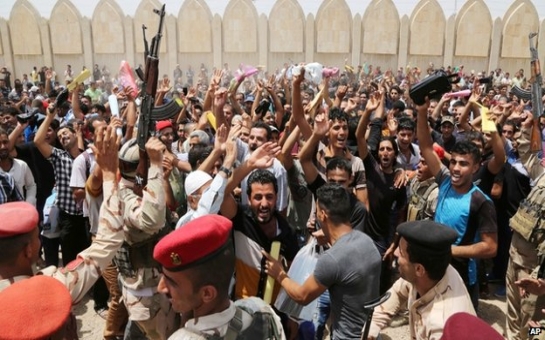
All options open to fight insurgents - Obama
US President Barack Obama says his government is looking at "all options", including military action, to help Iraq fight Islamist militants.
Follow us !

